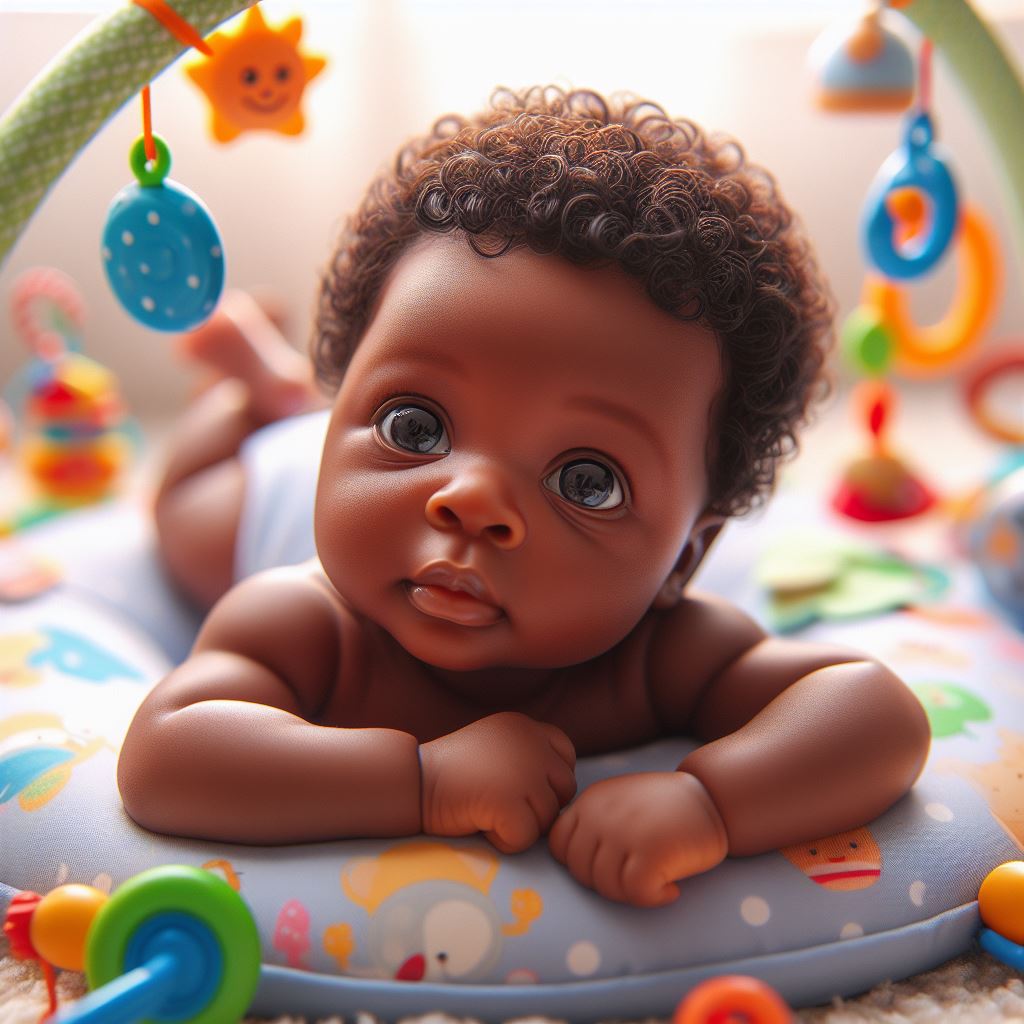Introduction
The journey of language acquisition in infants is a marvel to witness, as they progress from babbling to forming coherent words and sentences.
In this post, we delve into the intricate world of baby speech development stages, exploring why it’s crucial for parents and caregivers to comprehend these phases.
The ability to communicate is fundamental to human development, and the early years lay the foundation for a child’s language skills.
Understanding baby speech development is paramount for several reasons.
Firstly, it enables parents to actively participate in their child’s linguistic journey, fostering a strong parent-child bond.
When caregivers are attuned to the developmental milestones, they can provide the necessary support and stimulation to enhance language acquisition.
Moreover, early identification of potential speech delays or issues allows for timely intervention.
Speech and language skills are interconnected with cognitive and social development, and addressing any concerns early on can significantly impact a child’s overall growth.
Understanding baby speech development also promotes effective communication between parents and infants.
Recognizing the significance of non-verbal cues, gestures, and early vocalizations helps caregivers respond appropriately, enhancing the communicative exchange and building a sense of security for the child.
Baby speech development unfolds in a series of well-defined stages.
The journey typically begins with coos and babbles, where infants experiment with various sounds.
As they approach the age of six months, the emergence of canonical babbling signals a crucial phase, as babies start producing repeated syllables like “ba-ba” and “ma-ma.”
Around their first birthday, toddlers typically utter their first recognizable words.
The vocabulary expands rapidly during the second year, with the development of two-word combinations.
Parenting Made Just for You
Get personalized Parenting Solutions tailored to your child’s needs. Transform your parenting journey with expert guidance in 1-3 days.
Get StartedBy the age of three, children engage in more complex sentence structures and demonstrate a growing understanding of grammar.
Understanding these stages equips parents with realistic expectations and aids in tailoring interactions to support their child’s specific developmental needs.
In fact, comprehending baby speech development stages is a cornerstone of effective parenting. It not only fosters healthy communication but also lays the groundwork for a child’s lifelong language skills, setting the stage for a future rich in expression and understanding.
Pre-speech stage
Cooing and babbling
Definition and characteristics
Cooing and babbling are the early vocalizations made by babies, typically starting around 2 to 4 months of age.
It involves creating vowel-like sounds such as “coo” or “goo” and combining them with consonant sounds like “ba” or “da.”
These sounds are characterized by their repetitive patterns and joyful vocalizations.
Significance in language development
Cooing and babbling play a crucial role in the development of language skills.
They serve as building blocks for future speech, helping infants practice their vocal cords and refine their articulation.
It allows them to explore different sounds and understand the relationship between their own vocalizations and the responses they receive from caregivers.
Exploring sounds and mouth movements
Experimenting with different sounds
As babies grow and develop, they become more curious about the sounds they can produce.
They start experimenting with a wider variety of sounds, expanding their vocal repertoire beyond cooing and babbling.
These sounds may include clicks, raspberries, or tongue movements.
Mimicking facial expressions and gestures
In addition to producing sounds, infants also start imitating facial expressions and gestures.
They observe their caregivers’ movements, such as sticking out their tongues or smiling, and try to replicate them.
Unveil the Perfect Name that Tells Your Family's Story
Let us help you find a name that embodies your family's values, traditions, and dreams. Our personalized consultation weaves cultural insights to create a name that's uniquely yours.
Get StartedThis mimicking behavior helps babies further develop their oral and facial muscles necessary for speech production.
Overall, the pre-speech stage is a critical period in a baby’s language development journey.
Cooing, babbling, and exploring sounds and mouth movements lay the foundation for future communication skills.
Parents can support and encourage this stage by engaging in interactive play, responding to their baby’s vocalizations, and providing a stimulating environment with various sounds and gestures to mimic.
Read: Nutrition Tips for Healthy Baby Growth in Nigeria
Single-word stage
In the single-word stage of baby speech development, infants start to comprehend and express themselves using individual words.
This stage is an exciting milestone as it marks the beginning of their journey towards full language acquisition.
Development of comprehension
Recognizing and understanding words
During the single-word stage, babies start to recognize and understand words through repeated exposure.
They may show signs of comprehension by looking towards familiar objects or people when certain words are mentioned.
This indicates that they are beginning to make connections between words and their meanings.
Responding to simple instructions or questions
Infants in this stage also demonstrate their comprehension by responding to simple instructions or questions.
They may follow basic commands such as “wave bye-bye” or answer simple questions like “Where is the ball?” This shows their ability to understand and carry out basic verbal instructions.
Increasing vocabulary through exposure
As babies continue to be exposed to language around them, their vocabulary gradually expands during the single-word stage.
They start to learn and recognize more words, which significantly enhances their overall comprehension.
Family members and caregivers play a crucial role in this stage by introducing new words and objects to the baby’s environment.
Expressive language development
Saying their first words
One of the most thrilling moments during the single-word stage is when babies utter their first words.
It is a joyous occasion for both the baby and the parents.
The first words may be simple, such as “mama” or “dada,” but they represent a significant breakthrough in the baby’s ability to express themselves verbally.
Challenges and frustrations during this stage
While the single-word stage brings excitement, it can also be a time of challenges and frustrations for infants.
They may have difficulty expressing their needs and desires with limited vocabulary.
This can lead to frustration and tantrums as they struggle to communicate effectively.
Patience, support, and encouragement from caregivers are essential during this stage to help infants overcome these challenges.
In essence, the single-word stage of baby speech development is an important phase where infants begin to comprehend and express themselves using individual words.
It is a time of rapid growth in their vocabulary and understanding of language.
Although challenges and frustrations may arise during this stage, it is crucial for caregivers to provide a supportive and nurturing environment to foster their language development.
Read: Cultural Aspects of Breastfeeding in Nigeria
Two-word stage
This is an important stage in baby speech development as it marks the transition from single words to using simple phrases to communicate.
During this stage, babies begin to expand their vocabulary and understand simple grammatical structures.
Expanding vocabulary
At this stage, babies start combining two words together to convey their messages.
For example, they may say “mommy eat” or “more milk.” This shows their growing ability to express their thoughts using basic phrases.
They are able to understand simple sentence structures, such as subject-verb or noun-adjective combinations.
Communicating wants and needs
In addition to expanding their vocabulary, babies at the two-word stage also enhance their ability to communicate their wants and needs.
They can express basic desires and preferences, indicating what they want or don’t want.
This stage is crucial for their social interaction skills development as they learn to express themselves in a way that others can understand.
During this stage, parents and caregivers play a vital role in supporting and encouraging language development.
They can engage in conversations with the baby, providing opportunities for them to practice using two-word phrases and reinforcing their understanding of simple grammatical structures.
By responding and expanding on the baby’s speech, adults can help further develop the child’s language skills.
To aid the baby’s communication abilities, adults can use gestures and facial expressions along with spoken words.
This multimodal approach can help babies better comprehend the meaning behind their two-word phrases.
It also supports their overall language comprehension and expression.
As the two-word stage progresses, babies will continue to expand their vocabulary and start using longer phrases and more complex grammatical structures.
They will become increasingly proficient in expressing their thoughts and engaging in social interactions.
Parents should continue to provide a rich language environment and encourage the baby’s communication efforts during this critical phase of speech development.
In summary, the two-word stage is a pivotal point in baby speech development.
It represents the shift from single words to simple phrases, expanding vocabulary, and understanding basic grammar.
Babies also start communicating their wants and needs, laying the foundation for further language development and social interaction skills.
Read: Nighttime Breastfeeding: Tips for Nigerian Moms

Telegraphic stage
During the telegraphic stage of baby speech development, children begin to form sentences by combining multiple words to express their thoughts.
They also start using basic sentence structures, which marks a significant milestone in their language acquisition journey.
At this stage, toddlers develop a greater understanding of language and its structure.
Their comprehension skills improve, allowing them to understand complex sentences and concepts. They can now process more nuanced information and respond to questions with more detail.
Sentence formation
Sentence formation is a crucial aspect of language development during the telegraphic stage.
Children begin to construct simple sentences by putting together words they’ve learned. For example, they could say “Mommy go” or “Daddy ball.”
By combining words, they are able to communicate their desires and needs more effectively.
Furthermore, toddlers become proficient in using basic sentence structures such as subject-verb-object.
They understand that each sentence requires a subject (the person or thing performing the action), a verb (the action being performed), and an object (the recipient of the action).
This knowledge allows them to construct grammatically correct sentences.
Enhanced language comprehension
In addition to their improved sentence formation skills, toddlers at this stage also demonstrate enhanced language comprehension.
They can understand more complex sentences and concepts that are beyond their basic vocabulary.
For instance, they may comprehend sentences like “The blue car is faster than the red car.” They can grasp comparative language and understand the meaning behind it.
Moreover, toddlers begin to respond to questions with more detail during the telegraphic stage.
They can provide additional information and expand on their answers. Instead of simply saying “Yes” or “No,” they now offer explanations or share their thoughts.
This increased ability to express themselves allows for more meaningful interactions and conversations.
As children progress through the telegraphic stage, their language skills continue to develop rapidly.
They become more proficient in forming sentences, using basic sentence structures, and comprehending complex language.
This stage represents an important milestone in their speech and language development, setting the foundation for further language acquisition and communication abilities.
Overall, the telegraphic stage of baby speech development encompasses the formation of sentences by combining words and utilizing basic sentence structures.
This stage also includes enhanced language comprehension, as children begin to understand complex sentences and concepts.
It is an exciting phase in their language acquisition journey, marking significant progress in their ability to express themselves and engage in meaningful conversations.
Read: Breastfeeding and Returning to Work in Nigeria
Conversational stage
Fluent communication skills
Engaging in meaningful conversations
Babies at this stage begin to have more interactive and purposeful conversations with their caregivers.
They respond to questions, initiate topics, and show interest in others’ conversations.
Sharing thoughts, experiences, and opinions
Babies start expressing their thoughts, sharing their experiences, and even giving their opinions on certain matters.
They become able to communicate their preferences and express their emotions effectively.
Fine-tuning language abilities
Refining pronunciation and articulation:
During this stage, babies work on improving their pronunciation skills.
They practice forming sounds and words more accurately, enhancing their overall communication abilities.
Expanding vocabulary through exposure and reading:
As babies grow, their vocabulary expands through their exposure to various words and concepts in their environment
Reading books and engaging in language-rich activities further enhances their language skills.
In the conversational stage of baby speech development, babies become fluent communicators, engaging in meaningful conversations with their caregivers and peers.
They develop the ability to share their thoughts, experiences, and opinions, displaying a growing competence in expressing themselves effectively.
One of the remarkable milestones in the conversational stage is babies’ engagement in meaningful conversations.
They actively respond to questions, initiate discussions, and show genuine interest in others’ conversations.
This interactive behavior indicates their growing ability to comprehend and express themselves in a conversation.
Caregivers play a vital role in supporting and encouraging this development by actively engaging with their babies.
Furthermore, babies at this stage become skilled at sharing their thoughts, experiences, and opinions.
They express their preferences, recount their day, and even offer their perspectives on certain matters.
This ability to communicate effectively not only strengthens their bond with caregivers but also promotes their overall cognitive and emotional development.
Alongside their developing conversational skills, babies also fine-tune their language abilities during this stage.
Pronunciation and articulation refine as they practice forming sounds and words more accurately.
Caregivers can support this refinement by providing positive reinforcement and modeling proper pronunciation.
Additionally, babies’ vocabulary expands as they are exposed to a wide range of words and concepts in their environment.
This exposure may occur through conversations, storytelling, and engagement with educational materials.
Reading books plays a crucial role in further expanding their vocabulary and language skills.
It exposes them to new words, introduces them to different contexts, and enhances their overall language comprehension.
In review, the conversational stage of baby speech development signifies their growing fluency in communication.
Babies engage in meaningful conversations by actively participating, exchanging thoughts, and expressing their opinions.
Simultaneously, they refine their language abilities by improving their pronunciation and expanding their vocabulary.
Caregivers play a crucial role in supporting and nurturing this stage by providing ample opportunities for interaction, exposure to language-rich environments, and encouraging their language exploration.
Tips for Fostering Baby Speech Development
Speech development in babies is a crucial milestone that lays the foundation for their future communication abilities.
As parents and caregivers, there are several ways to support and foster their speech development.
This section explores the tips and strategies that can help parents create an environment conducive to their baby’s language learning.
Interactive activities
Engaging infants in interactive activities aids in their speech development. By incorporating fun and stimulating exercises, parents can encourage their babies to explore language and communication.
- Singing and reading aloud: Singing and reading aloud to babies expose them to the rhythms and patterns of speech. It helps them recognize familiar sounds and words, strengthening their speech development.
- Engaging in age-appropriate conversations: Talking to babies at their level of understanding stimulates their language skills. Using simple and clear language, parents can encourage babies to respond, increasing their speech development.
Creating a supportive environment
Creating a supportive environment is essential for promoting speech development in babies. By providing encouragement and exposure to language, parents can foster a strong foundation for future communication skills.
- Encouraging communication and expression: Creating a safe and nurturing environment where babies feel comfortable expressing themselves fosters their speech development. Responding to their attempts at communication validates their efforts and encourages further language exploration.
- Providing exposure to language through various sources: Introducing babies to books, music, and other forms of media exposes them to a wide range of vocabulary and language patterns. This exposure helps expand their understanding and expression of language.
Overall, fostering baby speech development requires consistent engagement and a supportive environment.
Through interactive activities and creating opportunities for communication and language exposure, parents can play a significant role in facilitating their baby’s speech development journey.
Conclusion
Throughout this blog post, we have explored the various stages of baby speech development.
We began with reflexive crying and moved on to cooing and babbling.
Next, we discussed the emergence of first words and the development of vocabulary and grammar.
It is crucial for parents and caregivers to be patient and supportive during the baby’s speech development journey.
Remember that each child progresses at their own pace, and it is through encouragement and understanding that they will confidently grow their language skills.
The ability to communicate effectively is essential for success in life.
By supporting and nurturing a baby’s language development, we are laying the foundation for their future communication skills.
Language development impacts not only their ability to express themselves but also their social interactions and overall cognitive abilities.
As parents and caregivers, it is our responsibility to provide a rich linguistic environment and engage in meaningful interactions with our babies.
Through recognizing the different stages of baby speech development and embracing the journey, we can empower our little ones to become confident and skilled communicators.




